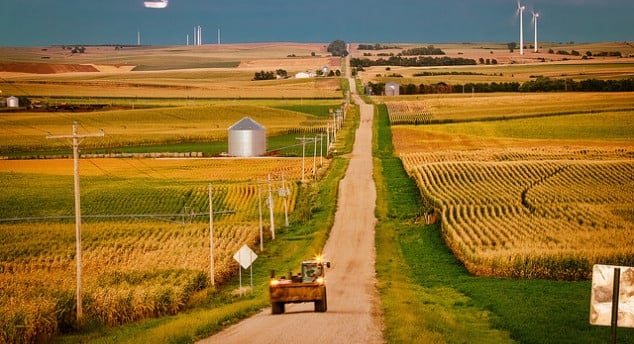Corporate Land Ownership: A Threat to Farmers and Food Security?
In recent years, there has been growing concern over the increasing corporate ownership of agricultural land and its potential consequences for small farmers, food security, and rural communities. This article examines the ethical and practical implications of allowing corporations to own vast tracts of farmland, questioning whether this practice aligns with the principles of a just and sustainable food system.
Felipe Saint-Martin
7/19/20243 min read


In recent years, there has been growing concern over the increasing corporate ownership of agricultural land and its potential consequences for small farmers, food security, and rural communities. This article examines the ethical and practical implications of allowing corporations to own vast tracts of farmland, questioning whether this practice aligns with the principles of a just and sustainable food system.
Traditionally, land ownership has been viewed as a fundamental right of individuals. However, the concept of corporate land ownership is a relatively recent development in human history. As Thomas Paine argued as far back as 1797, unimproved land should be considered the common heritage of humanity.This perspective challenges the notion that corporations, as artificial entities, should have the same rights as individuals when it comes to land ownership.
In recent decades, there has been a significant shift in land ownership patterns, with corporations and institutional investors acquiring large swaths of agricultural land. According to a study by the USDA, the number of institutionally owned properties in the United States rose three-fold from 2009 to 2022, with the market value of that property increasing from less than $2 billion to over $14 billion in the same period.
This trend of corporate land acquisition has several potential negative impacts:
Reduced Access for Small Farmers: As corporations buy up available farmland, it becomes increasingly difficult for small, independent farmers to acquire or maintain their own land. This is particularly challenging for young and beginning farmers trying to enter the industry.
Concentration of Wealth and Power: Corporate ownership of land concentrates wealth and decision-making power in the hands of a few large entities, potentially undermining the economic and social fabric of rural communities.
Changes in Land Use and Agricultural Practices: Corporate owners may prioritize short-term profits over long-term sustainability, potentially leading to more intensive farming practices that could harm the environment and local ecosystems.
Food Security Concerns: As control over food production becomes more centralized, there are concerns about the potential impact on food security and the resilience of our food systems.
The ethical implications of corporate land ownership are significant. As one perspective argues, "The earth is a shared inheritance, and profiting off a common resource is just wrong". This view suggests that land, as a finite and essential resource, should not be subject to the same ownership rules as other forms of property.
To address these concerns, several policy approaches have been proposed:
Land-Value Taxes: Implementing taxes based on the unimproved value of land could discourage speculative land holding and encourage more productive use of agricultural land.
Restrictions on Corporate Ownership: Some legislators have proposed limits on corporate ownership of farmland. For example, Senator Cory Booker introduced the Farmland for Farmers Act, which aims to limit future ownership and leasing of farmland by corporate investors.
Transparency Measures: Improving reporting and transparency around land ownership could help policymakers and the public better understand and address the issue.
Support for Small-Scale Farms: Implementing policies and programs that specifically support small-scale and family farms could help counterbalance the advantages that large corporations have in acquiring and maintaining farmland.
The question of whether corporations should have the right to own vast tracts of agricultural land is complex and multifaceted. While corporate investment can bring capital and efficiency to the agricultural sector, it also raises serious concerns about equity, sustainability, and the future of our food systems. As we move forward, it is crucial to critically examine our land ownership policies and consider whether they truly serve the best interests of farmers, rural communities, and society as a whole.Ultimately, the goal should be to create a food system that is not only productive but also equitable, sustainable, and resilient. This may require rethinking our current approaches to land ownership and developing new models that better balance the needs of all stakeholders in our agricultural system.
Ultimately, the goal should be to create a food system that is not only productive but also equitable, sustainable, and resilient. This may require rethinking our current approaches to land ownership and developing new models that better balance the needs of all stakeholders in our agricultural system.
From seed to table, let's cultivate fairness: Our land, our food, our future.
